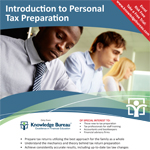Last updated: March 19 2018
Good News for Veterans: Veterans’ Education and Training Benefit

It’s always nice to share good news on the first week of spring: an important new benefit for veterans takes effect on April 1, 2018. First announced in the 2017 federal budget, the new Veterans’ Education and Training Benefit is part of the $133.9 million earmarked over six years to help veterans achieve post-military employment and position them to be more competitive in the workforce. But is it taxable?
The information has been sparse on the VAC website. But the short answer is yes, unless the education benefits the employer; unlikely in this situation. That’s because all honourably released veterans of the Canadian Armed Forces Regular Force and Reserve Force are eligible. The veterans will have up to ten years following their release date to use the benefit to obtain the college, university or technical education of their choice.
To get the biggest benefits, education and training must lead to the completion of a degree, diploma, certification or designation from an educational institution and be pre-approved by Veterans Affairs Canada (VAC). The benefit can also be used to pursue a master’s degree. After the completion of education, veterans will be able to leverage VAC’s Career Transition Services to help with the job search.
However, there are opportunities for other types of training, too, according to the fact sheet on VAC’s website. Here are the highlights:
- Veterans who are honorably discharged will qualify for a $40,000 benefit if they have six years of eligible service and up to $80,000 with twelve years of eligible service.
- This financial support is available to cover the cost of tuition and fees, books and living expenses.
- Veterans will not be limited to post-secondary training. If university or college is not their choice, up to $5,000 of the total funding earned would be available for career and personal development courses. This could include small business boot camps, continuing education, etc.
- Living expenses, travel, and incidentals will not be covered by the career and personal development funding unless built into the course costs by the institution or organization.
- The benefit will be paid directly to the veteran.
Back to tax basics: be sure to assess each situation separately, as it’s the tax status of the benefit is open to interpretation by the CRA. As mentioned, the Veterans Education and Training Benefit is taxable under paragraph 6(1)(a) of the Income Tax Act, unless it can be determined that the employer is the primary beneficiary. Because VAC is providing this support for honourably discharged veterans who are no longer employed by the payor, it is unlikely that the employer is the primary beneficiary; therefore, the benefit will likely be taxable in veterans’ hands.
And there is additional good news for veterans in the form of a new Caregiver Recognition Benefit, which replaces the Family Caregiver Relief Benefit (an annual payment that required an initial application and completion of a renewal form each year after that). Effective April 1, 2018, a non-taxable $1,000 monthly benefit will be paid directly to informal caregivers, including family members. This benefit will be indexed annually to keep pace with inflation and is part of the government’s ongoing efforts to enhance and simplify support to veterans, their families and caregivers.
Stay tuned to Knowledge Bureau Report for further news on the taxation of these benefits as more information becomes available.
Additional educational resources: Introduction to Personal Tax Preparation. This course has been recently updated to include the latest 2018 budget changes, and all case studies are updated to incorporate the most recent copies of professional tax software from Intuit, Dr. Tax, and Taxcycle to provide students with true-to-life, professional educational experience.
Knowledge Bureau’s new course session runs from March 15 – June 15, 2018, and you can start anytime. You can take up to three months to complete a 30-hour course; it’s flexible enough to fit around your schedule, and friendly personal support from a knowledgeable and caring instructor is available to you by email. Enroll risk free – take our free trials and receive orientation from our friendly educational consultants by phone. It is an easy, convenient way for busy adults to receive outstanding professional development and new credentials. We welcome newcomers to the field anytime. Sign up today!
©2018 Knowledge Bureau Inc. All Rights Reserved.






